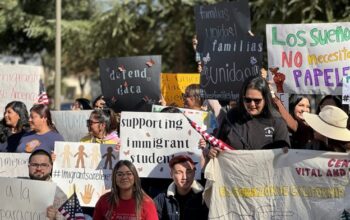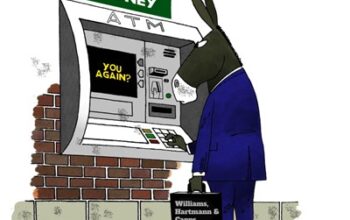This is no longer a serious question. Whether at a k-12 level or college level online education was a total failure. It was used as an excuse to allow teachers to get paid, pretend they were giving lessons from their bedrooms and still had their health insurance. We now has a generation of students that are two years behind in learning. In LAUSD the teachers are refusing to spend three extra days teaching in an effort to try to get the kids caught up.
Seriously—losing two years of education and you are going to make up for it in three days? The government education system has collapsed.
“While a few students cherish the flexibility to balance work and school, many more students have relayed that they want online options because there is a reduced workload, easier grading standards and they can get credit for courses — often general education courses — without “really having to take the course.” Such sentiments indicate a corrosive transactional understanding of their university experience whereby they come to want a diploma more than an education.
At the college level your tuition money went down the toilet.
‘It’s time to admit that online education has largely failed,’

Cal Poly professor BY STEPHEN LLOYD-MOFFETT, SLO Tribune, 9/26/22
College students thrive with the interactions that come with classroom learning, as opposed to online education, writes Cal Poly professor.
The 2021-22 academic year at Cal Poly ended in much the same way as it started: with the students and me wearing masks, and many of my colleagues choosing virtual classrooms instead of in-person education. This year, fortunately, is shaping up to be very different.
With the COVID era feeling like it is finally (hopefully) in the rear-view mirror, we are in a position to look back and begin to appraise the past two years of higher education. I hope we can begin by recognizing the admirable spirit of resolve demonstrated by Cal Poly: my teaching colleagues heroically shifted their teaching modalities and created the best online version of their courses they could; the students adapted surprisingly well to new learning environments; the administration overall handled the shifting sands of COVID with thoughtfulness, ingenuity and effectiveness.
However, looking back, we should now also conclude that online education compromises the educational goals of quality institutions. Can we now admit that our experiment in widespread online education has largely failed? Widespread online education has failed not because of the good intention of educators, but because of the nature of the medium: When education is just another online product competing for the attention of young people, the reality is that Hollywood, global influencers and even professional advertising will draw more eyes than lectures. It may be sad to some but most people would rather watch the hit web series “Drunk History” than take actual history classes.
Reality TV is packaged by producers to be far more titillating than the study of reality in physics or philosophy classes. Some “infotainment” sources like TED talks or the “Daily Show” may garner an audience, but we have to remember that our average professor was trained at a research university, not the halls of Disney or Universal Studios. The result is that when professor videos go viral, it is usually not because they are displaying stellar examples of pedagogic effectiveness. The complex task of nurturing students to grow holistically to understand and help shape our world will never be achieved through a browser tab, especially when YouTube and TikTok are the adjacent tabs. Don’t get me wrong: There is plenty of student demand for more online courses, but largely for the wrong reasons.
While a few students cherish the flexibility to balance work and school, many more students have relayed that they want online options because there is a reduced workload, easier grading standards and they can get credit for courses — often general education courses — without “really having to take the course.” Such sentiments indicate a corrosive transactional understanding of their university experience whereby they come to want a diploma more than an education. Many of my fellow faculty also want to continue teaching online, but again, largely for the wrong reasons. Many colleagues have confided in me that they just don’t want to commute to the office, they realize that “pushing play” on their prerecorded lecture frees up more time for their research and not being in the classroom limits their interactions with challenging students.
More than one faculty member has confided in me that they forget they are even teaching that quarter when the class is online. In the end, the demands on time and intellectual effort are just not the same for an online course, on either the student or faculty side.
Prior to the pandemic, I used to think that online teaching was the future and I even took a series of trainings on how to be an effective online educator to be ahead of the curve. I still think it has an important role in the overall mix of educational offerings for society, akin to community colleges and technical schools. However, for historically residential institutions like Cal Poly, I now think it should only be a niche offering, such as when students are away from campus during summers or for internships, when online courses can allow them to stay connected to their home campus.
There are also faculty and students with health challenges that might make in-person education risky. However, we at Cal Poly are, in the end, primarily a residential university and the benefits of that model cannot be duplicated online. As I observe what is best about Cal Poly, it seems that the most indelible moments in a student’s education involve personal interactions with faculty that are impossible to mediate through a screen: when a professor introduces a new idea in the classroom, reads the students’ reactions and improvises a further explanation so that the class glides collectively from confused to inspired; when a student comes to office hours and we help them imagine a new academic future; when a faculty club adviser expands learning into the surrounding community by leading their students through giant sequoia groves, sharing a boat ride to study the sea, or touring the architecture of Los Angeles.
We must admit that what makes Cal Poly great happens largely in person and the ultimate value of a Cal Poly education cannot be earned from a distance. Now, as our masks are off and the campus bustles with the smiling faces of incoming students, I see that more than ever.
Contributing columnist Stephen Lloyd-Moffett is a professor of religious studies at Cal Poly, San Luis Obispo.



